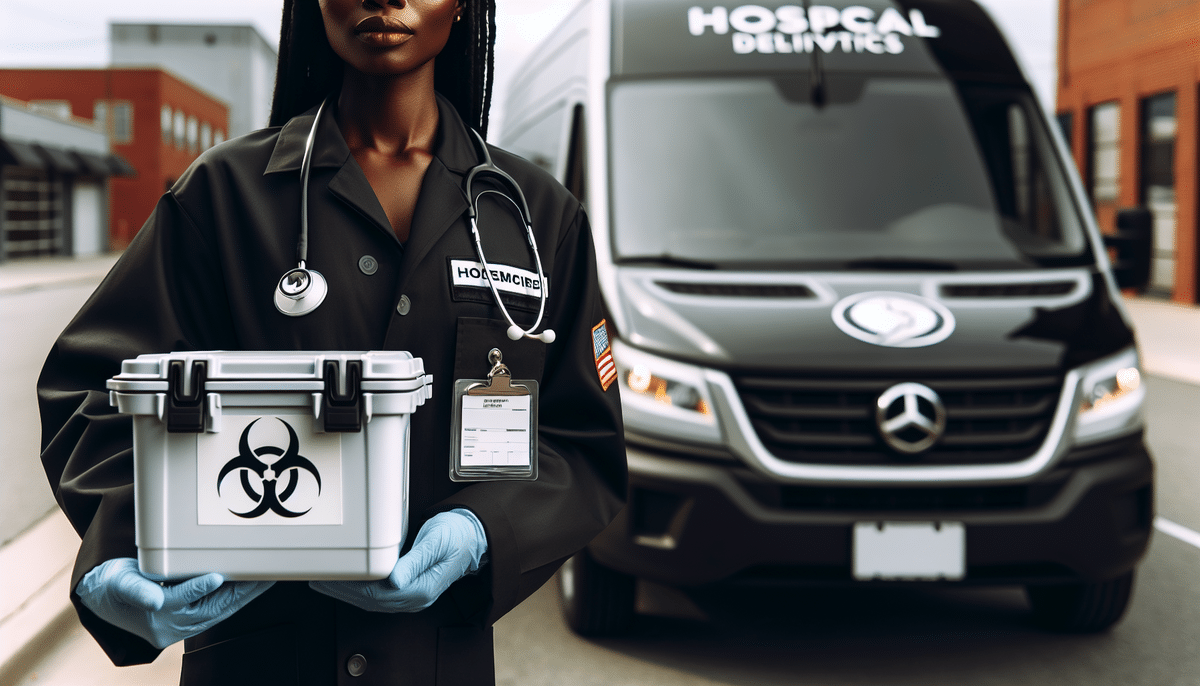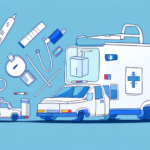How to Become a Medical Courier: A Comprehensive Guide
Medical couriers play a crucial role in the healthcare ecosystem by transporting sensitive medical samples, specimens, and equipment between hospitals, laboratories, clinics, and other healthcare facilities. This vital position ensures that critical substances necessary for patient treatment and diagnosis are handled with care and precision, requiring specific qualifications and skills.
Understanding the Role of a Medical Courier
Before pursuing a career as a medical courier, it’s essential to comprehend the full scope of the job, including the duties and responsibilities involved:
- Secure Transportation: Ensuring that medical specimens, samples, and equipment reach their destinations safely and securely.
- Compliance with Protocols: Adhering to strict protocols, guidelines, and safety measures to prevent contamination and maintain required temperature and humidity levels.
- Accurate Record-Keeping: Maintaining detailed records of deliveries and completing all necessary paperwork accurately.
- Punctual Deliveries: Delivering packages on time to ensure that specimens remain viable for testing and analysis.
- Professional Interaction: Maintaining a courteous and professional demeanor when interacting with clients, medical professionals, and patients.
Qualifications and Skills Required
To excel as a medical courier, individuals must possess a combination of specific qualifications and skills:
- Valid Driving License: A current driving license with a clean driving record is essential.
- Organizational Skills: Excellent ability to organize and manage multiple deliveries efficiently.
- Attention to Detail: Meticulous attention to prevent contamination and ensure prompt delivery.
- Customer Service Skills: Strong interpersonal skills for regular interaction with medical professionals and patients.
- Medical Knowledge: Understanding of medical terminology and procedures.
- Regulatory Compliance: Familiarity with regulations and guidelines for transporting medical materials.
- Physical Fitness: Capability to lift and transport heavy packages and equipment.
- Time Management: Ability to work independently and manage time effectively.
Education and Training
While there are no strict educational requirements, proper training is paramount for success in this field. Training programs offered by medical courier companies or third-party providers typically cover:
- Safe Handling: Techniques for the safe handling and transportation of medical specimens.
- Defensive Driving: Skills for safe driving under various conditions.
- Customer Service: Enhancing communication and customer interaction skills.
- Medical Terminology: Basic understanding of medical terms and procedures.
According to the U.S. Bureau of Labor Statistics, ongoing training is essential to stay updated with industry standards and technological advancements.
Licensing and Certification
Although specific licensing requirements for medical couriers are generally not mandated, obtaining certification can significantly enhance a courier’s credentials. Notable certification programs include:
- National Courier Association’s Medical Delivery Certification: Focuses on handling hazardous materials, maintaining temperature stability, and adhering to regulatory requirements.
- Healthcare Distribution Alliance (HDA) Certifications: Offers continuing education courses to help couriers stay current with industry standards.
These certifications demonstrate a commitment to professionalism and adherence to industry best practices.
Job Opportunities and Career Advancement
Finding Job Opportunities
Medical courier positions are widely available across various platforms:
- Job Search Websites: Platforms like Indeed, Glassdoor, and LinkedIn often list medical courier openings.
- Specialized Medical Courier Platforms: Websites dedicated to healthcare logistics.
- Company Websites: Direct applications through healthcare organizations and courier service providers.
Career Advancement
With experience, medical couriers can pursue advancement opportunities such as:
- Supervisory Roles: Overseeing a team of couriers.
- Logistics Management: Managing the broader logistics operations within a healthcare facility.
- Specialized Positions: Focusing on high-risk or high-value medical materials.
Challenges and Best Practices
Common Challenges
Medical couriers often face several challenges, including:
- Handling Hazardous Materials: Ensuring the safe transport of biohazardous substances.
- Maintaining Temperature Control: Keeping sensitive samples at required temperatures during transit.
- Timely Deliveries: Navigating traffic and other delays to ensure timely deliveries.
Overcoming Challenges
Effective strategies to overcome these challenges include:
- Proper Training: Comprehensive training on handling and transporting medical materials.
- Reliable Transportation: Ensuring vehicles are well-maintained and equipped for temperature control.
- Coordination with Medical Facilities: Effective communication and scheduling to optimize delivery routes.
Working Conditions and Salary Expectations
Medical couriers typically work in varied environments, which may include hospitals, laboratories, and clinics. Working hours can be long and may include weekends or evenings to accommodate urgent deliveries. Physical fitness is also important due to the nature of handling heavy packages and equipment.
According to the U.S. Bureau of Labor Statistics, the average annual salary for medical couriers ranges around $35,000, though this can vary based on location, experience, and the employing organization.
Future Outlook for the Medical Courier Industry
The demand for medical couriers is projected to grow due to the increasing need for healthcare services and the expansion of remote testing facilities. Advances in medical technology and the emphasis on timely diagnostics further bolster the need for reliable medical courier services.
According to industry reports, the healthcare logistics sector is expected to grow by X% over the next five years, presenting ample opportunities for those entering the field. This growth is driven by factors such as the aging population, the rise of personalized medicine, and the expansion of laboratory services.
Safety and Confidentiality Measures
Safety Measures
Ensuring the safety of sensitive materials is paramount. Medical couriers should implement the following measures:
- Use of Biohazard Bags: Properly containing and securing biological specimens.
- Proper Labeling: Clearly labeling all packages to indicate contents and handling requirements.
- Securing Loads: Ensuring that all packages are securely fastened during transit to prevent movement and damage.
Maintaining Confidentiality
Confidentiality is critical in handling medical information. Couriers must:
- Authorized Disclosure: Only disclose information to authorized personnel.
- Secure Documentation: Ensure that all paperwork and packages are properly sealed and labeled to protect patient privacy.
- Data Protection: Adhere to regulations such as the Health Insurance Portability and Accountability Act (HIPAA) to safeguard sensitive information.
Importance of Excellent Customer Service
Providing excellent customer service is essential for maintaining trust and ensuring patient satisfaction. Medical couriers should:
- Professional Demeanor: Maintain a friendly and professional attitude during all interactions.
- Clear Communication: Communicate clearly with clients and healthcare professionals regarding delivery statuses.
- Dependability: Ensure safe and timely deliveries to uphold the reliability of healthcare services.
Conclusion
Becoming a medical courier requires dedication, attention to detail, and a strong work ethic. As the demand for healthcare services continues to grow, the need for reliable medical courier services intensifies, making it an excellent career choice within the healthcare and logistics industries. By acquiring the necessary skills and qualifications, and adhering to best practices, individuals can successfully pursue a rewarding career as a medical courier, contributing significantly to the healthcare system's efficiency and effectiveness.






















